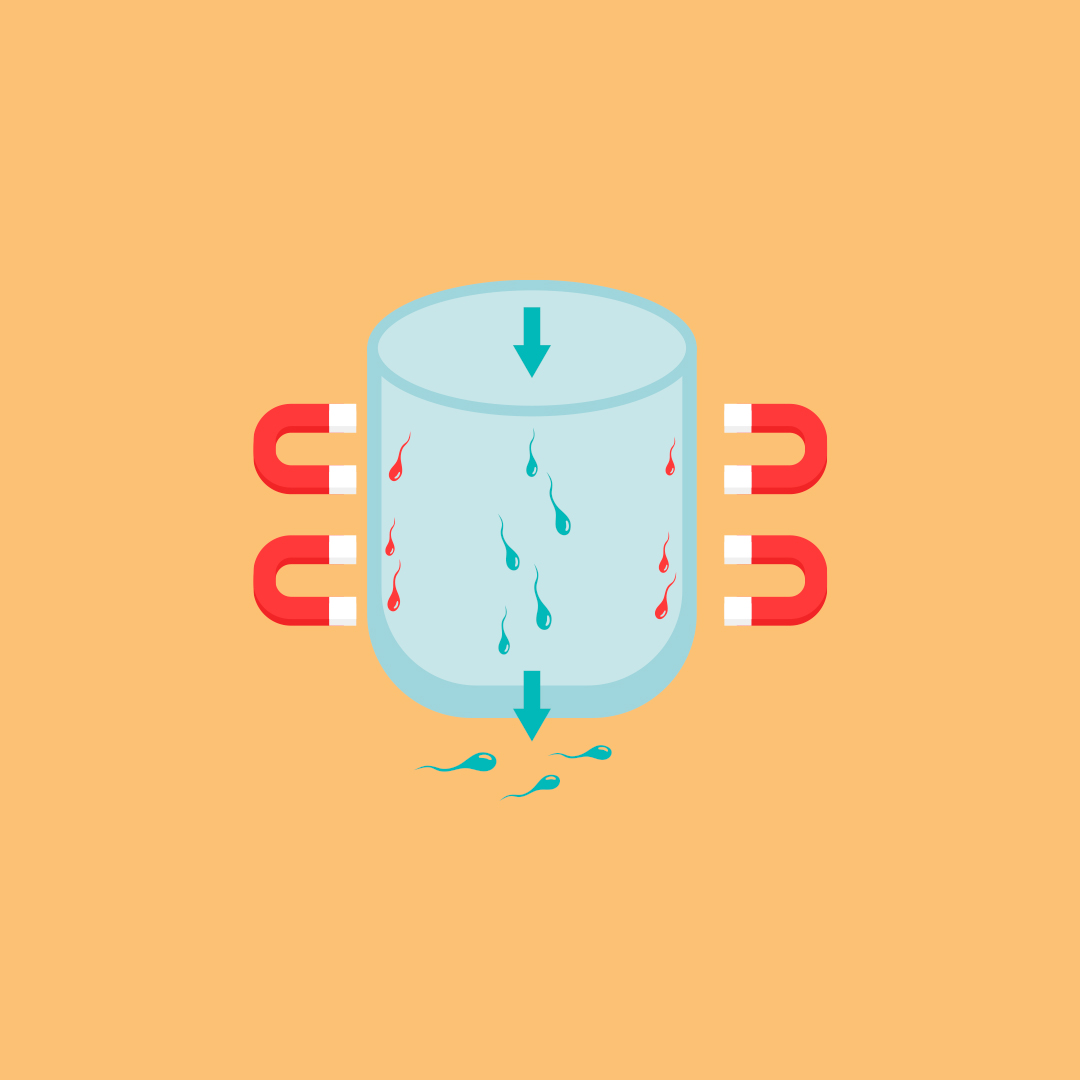MACS Technique – annexin columns

What is MACS?
Magnetic Active Cell Sorting, or MACS, is a spermatozoid selection technique that enables elimination of dead or damaged spermatozoids prior to assisted reproduction treatment. In some case these spermatozoids can represent up to 90% and are very much linked to low quality semen or spermatozoid DNA fragmentation. In fact, cell apoptosis or programmed cell death is one of the most common causes of male infertility. Separating the defective spermatozoids from the rest ensures that only the optimum ones are used, thus considerably increasing the possibilities of achieving an in-vitro pregnancy.
The benefits of using MACS
The MACS technology has been proven to be extremely beneficial in studies that compared rates of pregnancy obtained over conventional techniques.
At Clínica Fertia we have been offering this technique since 2012 as a successful alternative when:
The quality of the semen is low.
Couples with a history of repeated miscarriages.
Couples with a history of several failed In-Vitro Fertilisation cycles.
Poor embryonic quality, when not attributable to the oocytes.
MACS Technique
The basis of the magnetic separation is very ingenious: the spermatozoids are placed in contact with metal microspheres coated with a substance called Annexin, a protein that is able to detect defective spermatozoids and fasten onto them. Thus, when a magnetic field is applied to the sample, the spermatozoids to which the Annexin has bonded can be separated from the optimum spermatozoids, which will be used in the treatment.

Frequently asked questions about reproduction treatments
If you would like more information about our treatments, we are always available to help and answer any of your questions.
How long do I have to wait to start treatment?
How many attempts can I make?
In the case of artificial insemination, here at the clinic we recommend a maximum of four attempts, since 90% of pregnancies occur in the first four cycles.
Regarding In-vitro fertilisation or microinjection, our clinic never makes more than four attempts using these techniques.
In the case of egg donation, it is more difficult to establish a limit, this will normally be determined by psychological and also economic factors.
Can you use these techniques when you have already entered menopause?
In these cases, the reception of eggs from a donor must be used.
What are the biggest concerns of egg or sperm recipient couples?
Another factor that concerns a couple is the health of the donors and the physical resemblance to them.
In our centre, both in the case of sperm donors and egg donors, our goal is to seek that the physical resemblance is as similar as possible to the parents.
Are these treatments expensive?
Clínica Fertia is a pioneer in maintaining an honest and transparent policy. Since 2002 we have published the information of the cost of our treatments on our website.